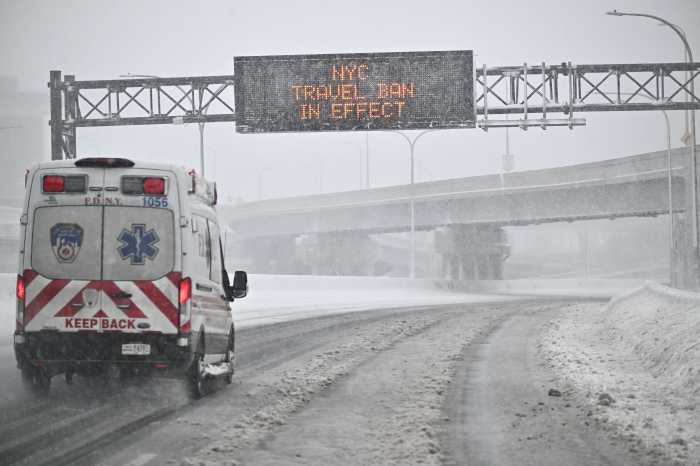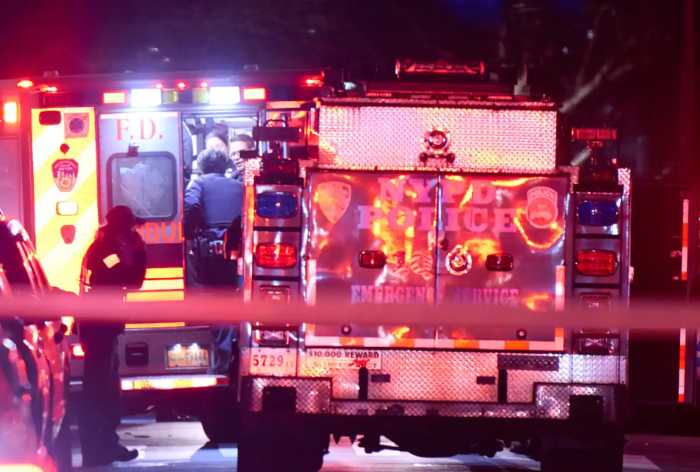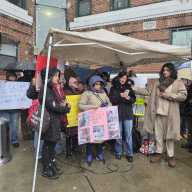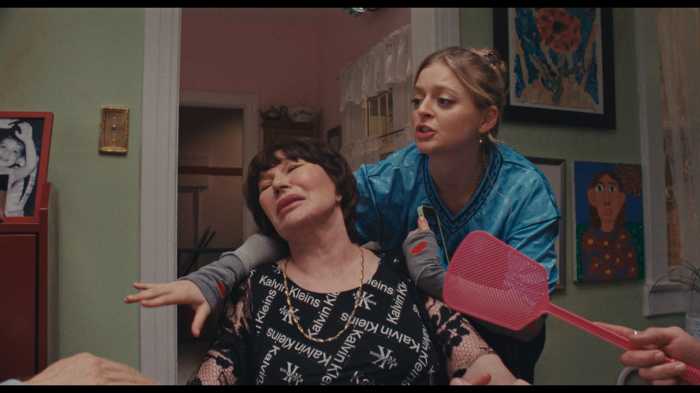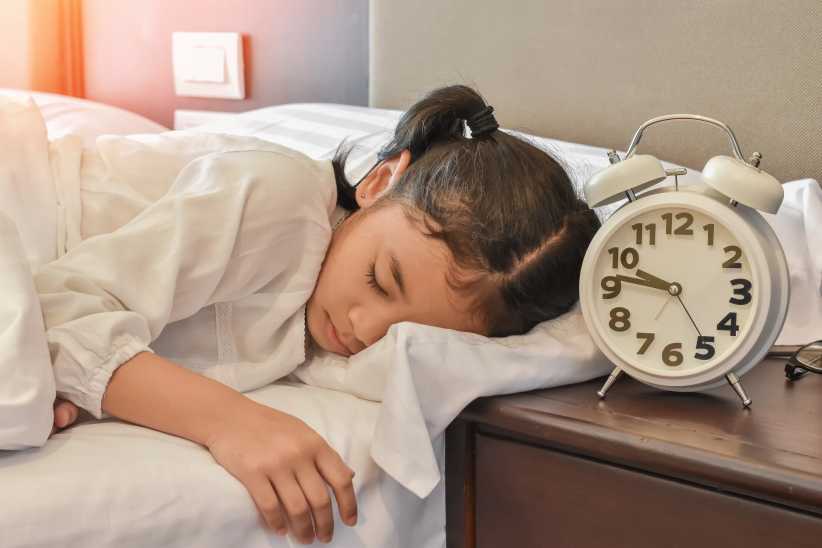By Madina Toure
Queens College held a ceremony last week for Domestic Violence Awareness Month featuring survivors, students and Queens legislators in solidarity with survivors.
The event, which took place in the Rosenthal Library Rotunda of the college at 65-30 Kissena Blvd. in Kew Gardens Hills, included participants from Queens College’s Women & Work program, a free, 15-week course that empowers participants living at or below the federal poverty level to rebuild lives that have been shattered by domestic violence. The program has helped more than 3,000 women.
The participants sat in the first two rows, carrying posters with slogans such as “Protect women and children” and “Domestic violence is an epidemic in the USA.”
Queens College President Félix Matos Rodríguez noted that more than 6,500 lives were lost during the Iraq and Afghanistan wars and that the number of women murdered in the United States during that same 12-year period was close to 12,000.
“Probably the majority were murdered by someone they knew—and someone they knew well—and someone they trusted,” Rodriguez said.
Carmella Marrone, Women & Work’s director, emphasized the concept of “intimate terrorism,” the use of physical abuse and other tactics to keep control over an individual in a relationship.
“Make no mistake: they (women), too, are casualties of war,” Marrone said.
Queens Borough President Melinda Katz pointed to significant steps, such as the passage of the Domestic Violence Intervention Act of 1994 and legislation she passed in the City Council that extended the statute of limitations for sexual abuse of children to age 18.
“I know that at the end of the day, it’s about power and making your own trail for you and your children,” Katz said.
City Councilman Rory Lancman (D-Hillcrest), a co-sponsor of a package of bills that seek to increase domestic violence reporting, provided $5,000 to St. John’s University for Project Connect, which provides trauma-informed therapy to families that have experienced violence, $5,000 to the Korean American Family Service Center and $10,000 to the Shalom Task Force to support outreach and services for victims.
He noted that 25 women were murdered in Queens in 2014 due to domestic violence. In addition, he said that domestic violence affects about a quarter of families living in the city’s homeless shelters.
“From 2009 to 2014, domestic violence incidents increased 33 percent in New York City,” Lancman said. “Despite all the great work that we’re doing at the city and the state (levels) and in the private advocacy community, the problem is only getting worse.”
State Assemblywoman Nily Rozic (D-Fresh Meadows) has two bills in the state Assembly that would require telephone companies that offer shared family plans to allow domestic violence victims to be released from their account without penalties in instances of domestic violence.
“Something so basic, something that you wouldn’t think twice about, it’s still an issue right here in the state of New York,” Rozic said.
Fatima Anwar of Queens College Students for Change, a Women & Work intern, said students are not exempt from domestic violence.
“If I am not part of the solution, then I am a part of the problem,” Anwar said.
A domestic violence survivor who asked to be identified as “Hope” shared her experience.
She received counseling and support from the Women & Work program, encouraging victims to speak up about their experiences.
“I was treated unfairly by the people I thought were going to love me, but thankfully my story does not end on a sad note because I have learned that change is possible,” she said.
Reach reporter Madina Toure by e-mail at mtour

